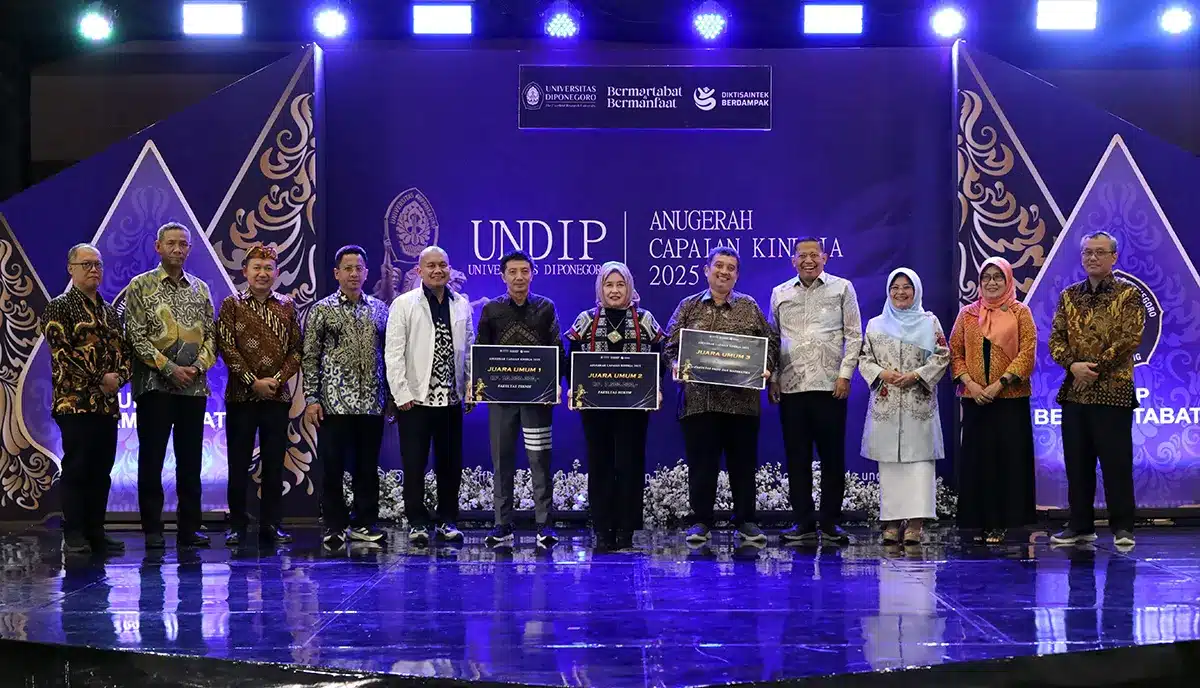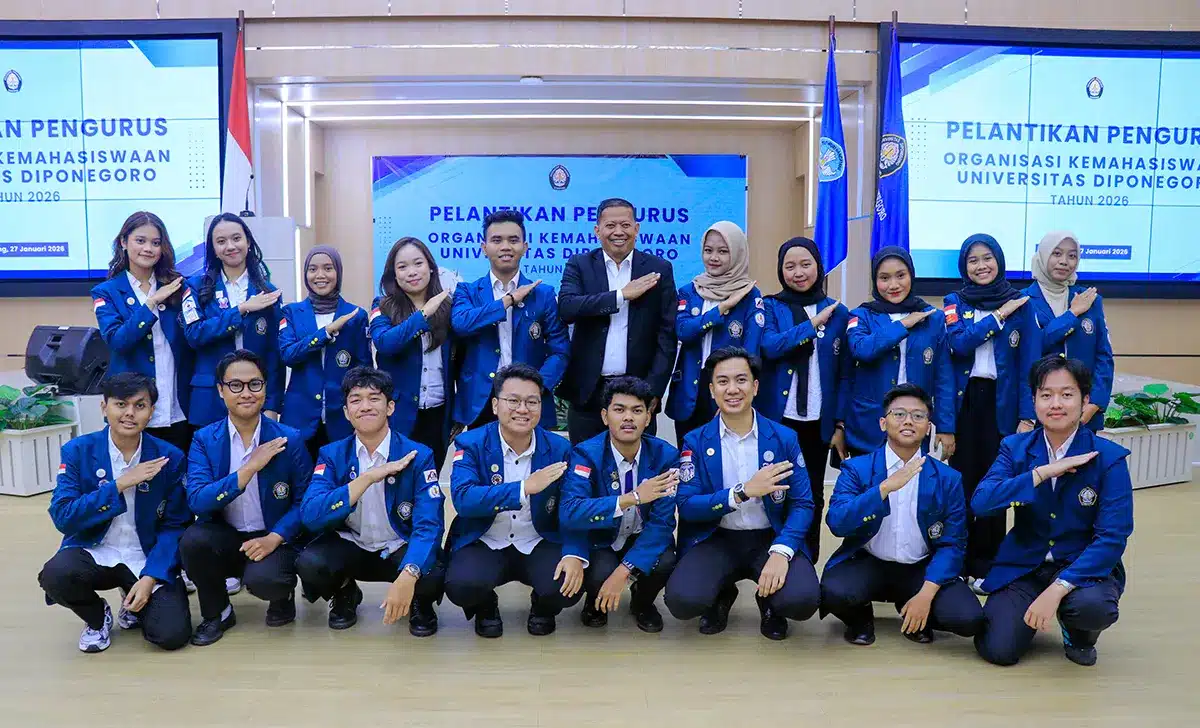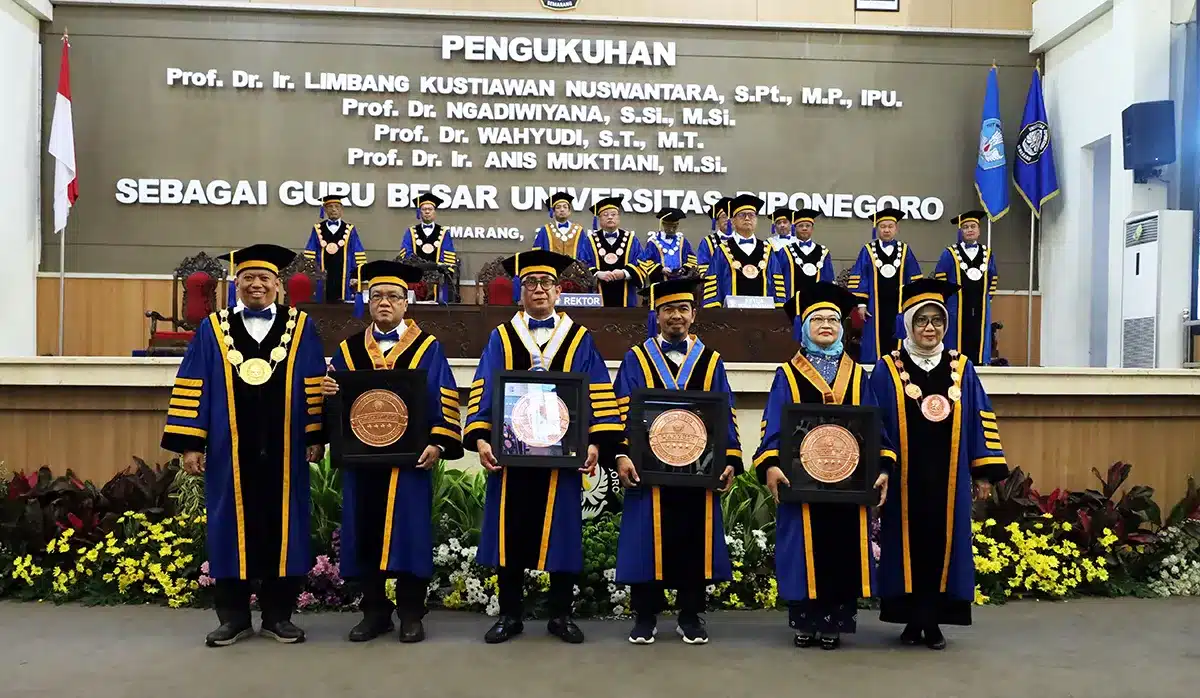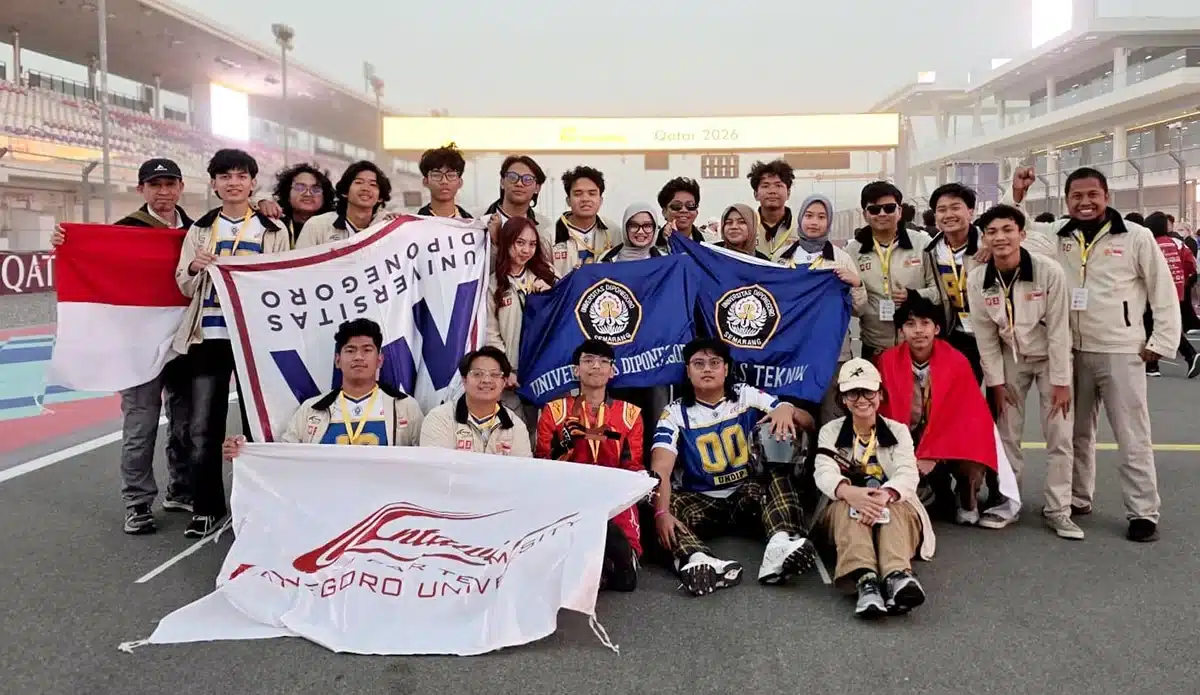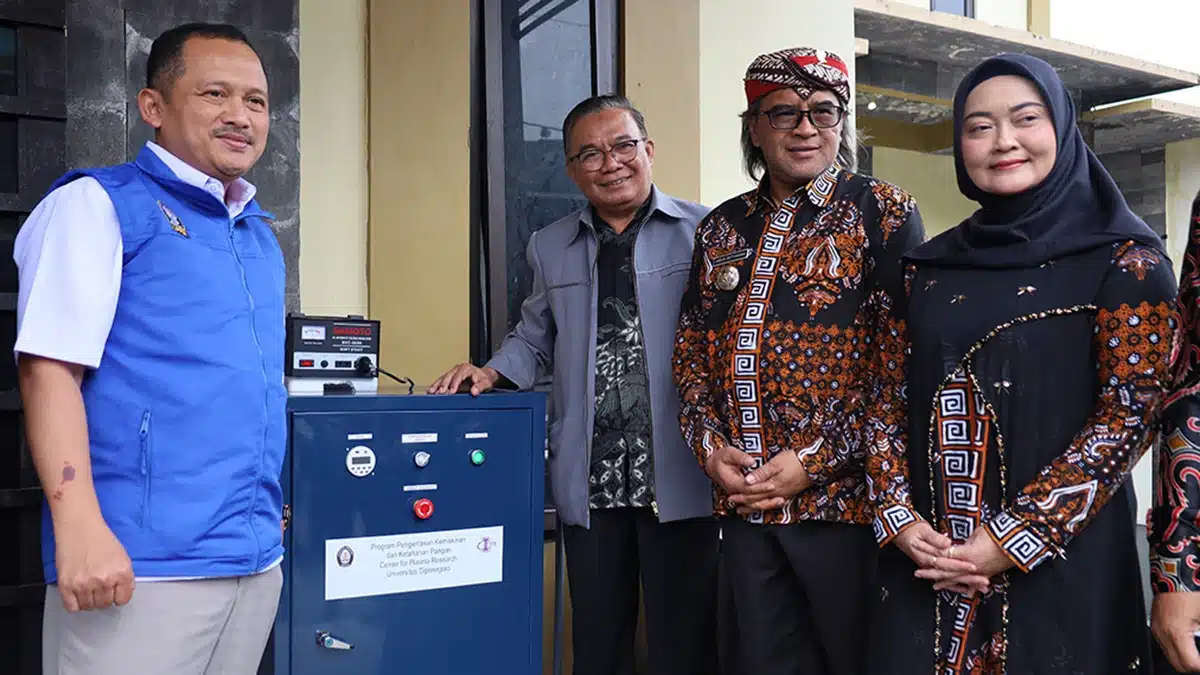SEMARANG – Chairperson of UNDIP Green Technology Research Center, Prof. Dr. Ir. Purwanto, DEA, stated that plastic waste is difficult to turn into a fuel sources for industrial scale. Observations made by the expert in the field of “Process Systems Engineering and Chemical Reaction Engineering” analyzes problems such as the amount of energy required to convert plastic into fuel sources, and its potential of dioxin production are taken as considerations for using plastic waste as a large-scale fuel sources.
In the Industrial & Environmental Webinar Series-4 with the theme “Turning Waste into Blessings”, on Thursday (4/3/2021), Purwanto suggested recycling to solve existing plastic waste. “Therefore, it is recommended to recycle plastic because it can become useful items such as household appliances, plastic bags, cloth, clothes, and shoes,” said Purwanto, who is also Chair of Undip Professorship Council for the 2020-2024 Period.
Another step that needs to be taken to deal with the increasing volume of waste, especially plastic, is to build awareness that waste is not to be thrown away. We have to treat it as a resource. “Let us see if used mineral water bottles are well managed, they can be sold for Rp 2,500 to Rp 4,500 per kilogram. If it is disposed carelessly, it will pollute the environment,” he said.
Moreover, the public view that generally considers waste as disposed material, rubbish, useless, dirty and has no value, must be changed immediately. Awareness to treat waste as something valuable must be started from simple action, in example by putting trash in the space provided.
Waste itself can be divided into several types based on its chemical, physical, biodegradability, and flammability feature. This understanding is important regarding waste management. “If we talk about waste as raw material for energy, then it is grouped by its combustibility. If the waste is used for compost, it is more interesting if it is grouped according to its biodegradability,” said Purwanto.
The implementation of this seminar by Undip Postgraduate School’s Green Technology Research Center is also based on the intention to find a solution to the existing waste problem. The action is started by recycling waste to the maximum capacity. He considered it is the time to take joint action of the idea that waste is no longer a waste but as a resource.
Dean of Undip Postgraduate School, Dr. RB. Sularto, S.H., M.Hum., during the event said that this webinar is the 4th series after previously being halted for several reasons. This seminar is still held even in the situation of Covid-19 pandemic. “The problem of waste is not only during the Covid-19 pandemic conditions. Before the pandemic and maybe after the pandemic ended, waste is still a common problem. That’s why we hold this webinar,” said Sularto.
Through this webinar, he hopes that solutions and effective ideas can be initiated to solve the waste problem in Indonesia. “Moreover, inorganic waste which requires different handling, such as plastic waste, takes a long time to disintegrate. It is better to change it into something that can be useful for all of us,” he conveyed.
This webinar presented four speakers, they are Head of Postgraduate School of Green Technology Research Center, Prof. Dr. Ir Purwanto, DEA; Senior Vice President (SVP) of Technology of PT. Pupuk Kaltim, Heri Subagyo; Lecturer in Environmental Engineering of Faculty of Engineering Undip as well as Chair of Gedawang Garbage Bank, Dr. Sri Sumiyati, S.T., M.Si.; Chairperson of Maryono Green Infrastructure Resilience Development Research Center.
SVP of PT Pupuk Kaltim, Heri Subagyo, in his presentation said that Pupuk Kaltim has implemented the 3R Policy (Reduce, Reuse, and Recycle) of solid waste in their environment. This policy has been carried out technically with the surrounding community members of Mekarsari Cooperative to process waste.
The program, which was started in 2014, during the 2017-2020 period has succeeded in processing 101 tons of leaf and household waste, and 65 tons of fertilizer product waste. From these waste processings, 65 tons of compost and 6,953 liters of liquid organic fertilizer are produced. “The cooperative’s income from this activity reaches more than Rp. 64 million,” said Heri.


